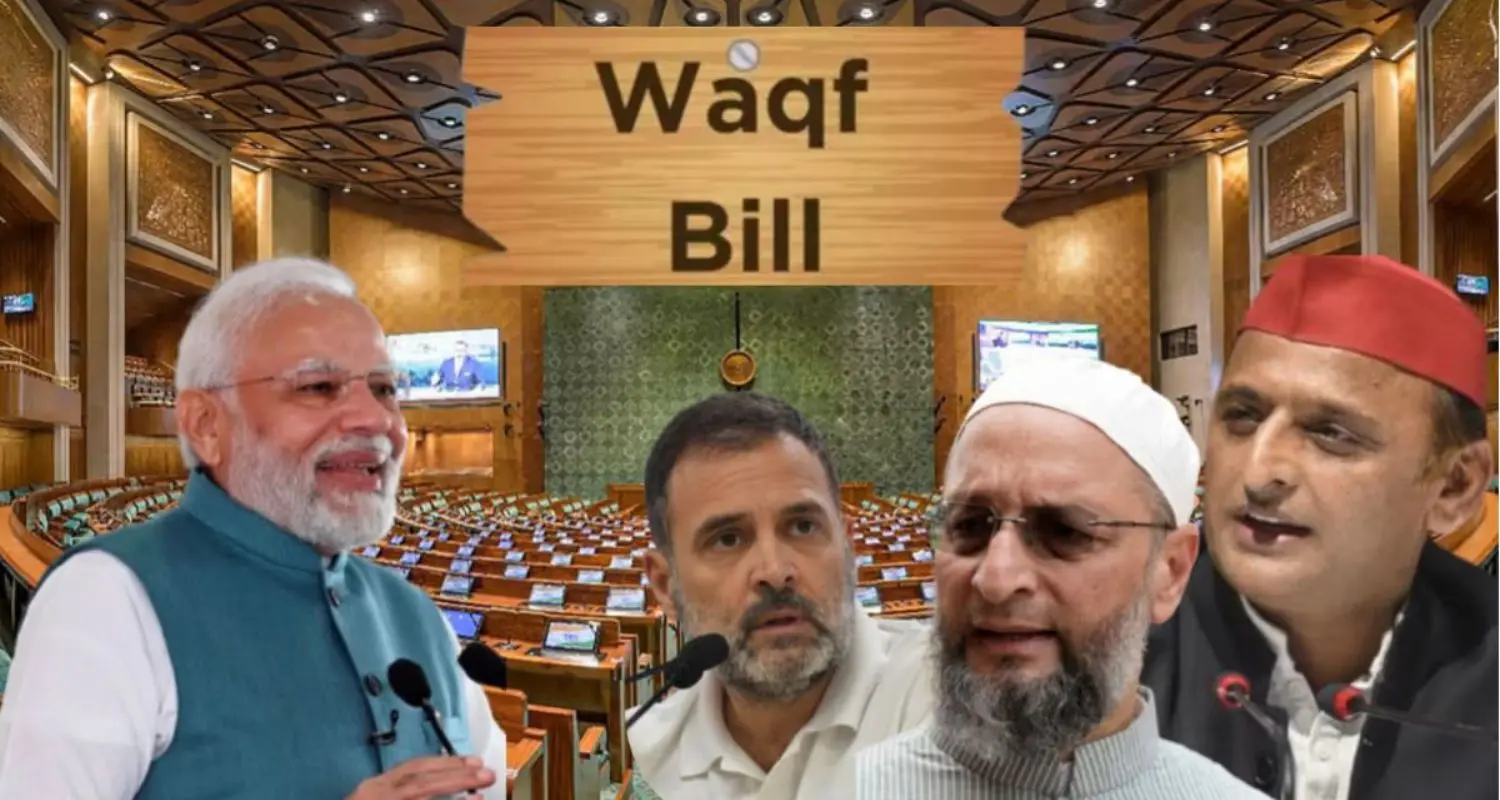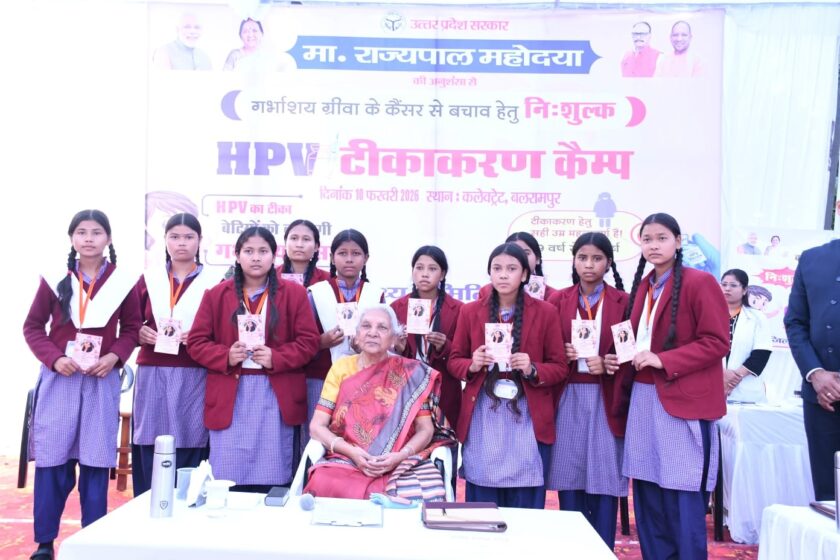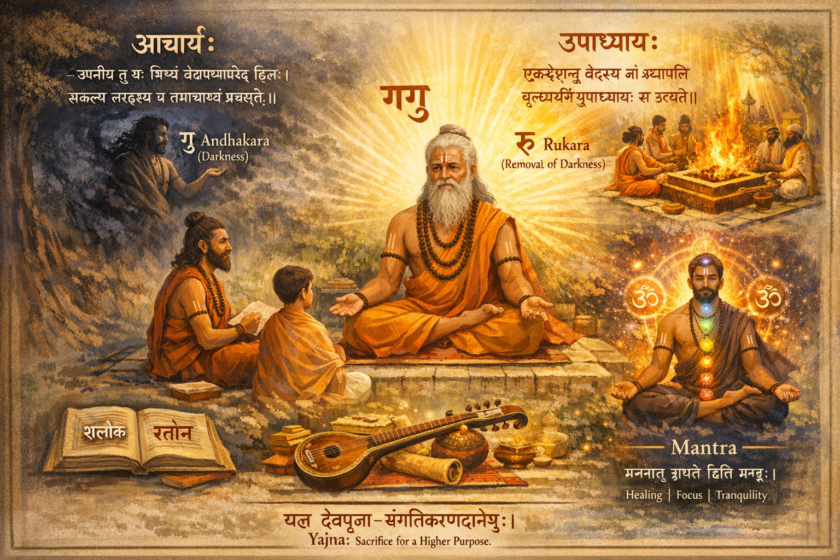New Delhi: The Waqf (Amendment) Bill, 2024, introduced in the Indian Lok Sabha on August 8, 2024, has emerged as a highly contentious piece of legislation, igniting a fierce political debate that reflects deep-seated ideological divides, religious sensitivities, and electoral strategies in India. The bill seeks to amend the Waqf Act, 1995, which governs the management of waqf properties—assets dedicated by Muslims for religious, charitable, or pious purposes under Islamic law. As of April 2, 2025, the bill has been reintroduced in Parliament, sparking a showdown between the ruling Bharatiya Janata Party (BJP)-led National Democratic Alliance (NDA) and the opposition INDIA bloc. Below is a comprehensive report on how the politics surrounding the bill is unfolding, based on available information and developments up to the current date.
Background and Objectives of the Bill
The Waqf Act, 1995, established Waqf Boards to manage properties estimated to span over 6 lakh acres, with a potential value of ₹10–12 lakh crore. Over the years, issues like mismanagement, encroachments, and legal disputes have plagued waqf administration, prompting calls for reform. The 2024 amendment bill, officially titled the “Unified Waqf Management, Empowerment, Efficiency, and Development Act, 1995” (UMEED), aims to address these challenges by enhancing transparency, streamlining registration, and improving governance. Key provisions include:
-
Mandatory inclusion of non-Muslims and women in Waqf Boards and the Central Waqf Council.
-
Elimination of “waqf by user”, a provision recognizing properties as waqf based on long-term religious use, even without formal documentation.
-
Centralized registration of waqf properties via a digital portal, with District Collectors empowered to adjudicate disputes.
-
Restricting waqf creation to individuals practicing Islam for at least five years.
-
Reduced autonomy for Waqf Boards, with greater government oversight.
The government, led by Union Minority Affairs Minister Kiren Rijiju, argues that these changes will empower marginalized Muslims, particularly women and children, and curb corruption. Critics, however, see it as an assault on Muslim autonomy and a step toward state control over religious institutions.
Political Players and Their Positions
BJP and the NDA
The BJP, with 240 MPs in the Lok Sabha, is the driving force behind the bill. It frames the amendments as a progressive reform, citing recommendations from the Sachar Committee (2006) and the 2013 amendments to justify its stance. The party has secured support from key NDA allies:
-
Telugu Desam Party (TDP): With 16 MPs, TDP initially hesitated but endorsed the bill after the Joint Parliamentary Committee (JPC) incorporated its suggestion to avoid retrospective application of the “waqf by user” removal.
-
Janata Dal (United) (JD(U)): Led by Bihar CM Nitish Kumar, JD(U) (12 MPs) also backed the bill, with the caveat that it should not apply retroactively. Kumar’s support aligns with his history of balancing Muslim interests with coalition dynamics.
-
Janasena: With 2 MPs, this Andhra Pradesh-based ally explicitly supported the bill, with leader Pawan Kalyan arguing it modernizes a colonial-era law for the Muslim community’s benefit.
The NDA’s numerical strength—293 MPs in the Lok Sabha and 125 in the Rajya Sabha (above the majority mark of 118)—gives it a clear edge to push the bill through Parliament. BJP leaders like Ravishankar Prasad have questioned the Waqf Boards’ contributions to public welfare, framing the bill as a governance overhaul rather than a religious issue.
Opposition INDIA Bloc
The opposition, led by the Congress (99 Lok Sabha MPs), has fiercely resisted the bill, labeling it unconstitutional and anti-Muslim. Key players include:
-
Congress: MPs like Gaurav Gogoi and KC Venugopal argue that the bill violates Articles 14 (equality), 25 (religious freedom), and 26 (right to manage religious affairs) of the Constitution. They warn it sets a precedent for targeting other religious communities’ properties.
-
All India Majlis-e-Ittehadul Muslimeen (AIMIM): Led by Asaduddin Owaisi, AIMIM calls it the “Waqf Barbaad Bill,” alleging it aims to seize Muslim graveyards, mosques, and dargahs. Owaisi has accused the BJP of undermining parliamentary supremacy and Muslim rights.
-
Samajwadi Party (SP): Akhilesh Yadav (37 MPs) claims the bill is a distraction from governance failures, mocking its acronym “UMEED” and accusing the BJP of communal polarization.
-
Trinamool Congress (TMC): MPs like Kalyan Banerjee (29 MPs) argue it breaches Muslims’ religious duties and property rights, criticizing the delegation of authority to District Collectors as arbitrary.
-
Dravida Munnetra Kazhagam (DMK): With 22 MPs, DMK calls it the “Waqf Annihilation Bill,” highlighting procedural lapses in the JPC and threats to federalism.
Other opposition parties, like Shiv Sena (UBT) and YSRCP, have expressed reservations, with the former monitoring developments and the latter opposing it outright. The opposition’s dissent notes in the JPC—11 in total—were initially curtailed but later included after protests, reflecting their unified stance against the bill.
Muslim Organizations
Groups like Jamiat Ulama-e-Hind and the All India Muslim Personal Law Board (AIMPLB) view the bill as an attack on community autonomy. The AIMPLB claims over 5 crore emails were sent to the JPC opposing it, while protests in cities like Kolkata and Patna underscore grassroots resistance. Critics within these groups argue that including non-Muslims in Waqf Boards contradicts Islamic law and the syncretic ethos of earlier provisions allowing non-Muslim donations.
Legislative Journey and Controversies
Introduced in August 2024, the bill faced immediate backlash, leading to its referral to a 31-member JPC chaired by BJP MP Jagd Jagdambika Pal. The JPC, comprising 21 Lok Sabha and 10 Rajya Sabha members, received over 97 lakh petitions, reflecting public engagement. After 36 chaotic meetings—marked by physical altercations and walkouts—it cleared 14 NDA-backed amendments on February 27, 2025, rejecting 44 opposition proposals. The Union Cabinet approved these changes, and the bill was re-tabled on April 2, 2025, with an 8-hour Lok Sabha debate.
Key controversies include:
-
Non-Muslim inclusion: Seen as a violation of Article 26, with critics questioning why similar provisions don’t apply to Hindu endowments.
-
Waqf by user removal: Risks invalidating undocumented properties, potentially affecting historical mosques and graveyards.
-
District Collector’s role: Accused of favoring government claims, undermining Waqf Boards.
-
Constitutional concerns: Opposition alleges breaches of equality and religious freedom, though the government denies waqf boards qualify as religious denominations under Articles 25-26.
Electoral and Social Implications
The bill’s timing—ahead of state elections in Maharashtra and Haryana—has fueled accusations of political opportunism. The BJP’s Hindu nationalist base supports it as a counter to perceived Muslim “appeasement,” while Muslim communities fear losing control over their religious assets. Protests by Muslim groups and counter-narratives from BJP allies like Uttarakhand Waqf Board Chairman Shadab Shams—who called it a “ray of hope” for poor Muslims—highlight the polarized discourse.
Current Status and Outlook
As of April 2, 2025, the bill is under debate in the Lok Sabha, with whips issued by both NDA and INDIA bloc parties ensuring full attendance. The NDA’s majority suggests passage is likely, though the Rajya Sabha debate could see further contention. If passed, it awaits President Droupadi Murmu’s assent. Critics like Vishnu Shankar Jain argue it doesn’t go far enough to reclaim disputed properties, while opposition leaders warn of communal strife.
The Waqf Amendment Bill encapsulates India’s complex interplay of religion, law, and politics. For the BJP, it’s a governance reform aligning with its majoritarian agenda; for the opposition and Muslim groups, it’s an existential threat to minority rights. With the NDA’s legislative muscle, the bill’s passage seems imminent, but its long-term impact—on waqf properties, communal harmony, and India’s secular fabric—remains uncertain, promising continued political and legal battles ahead.
---------------------------------------------------------------------------------------------------














